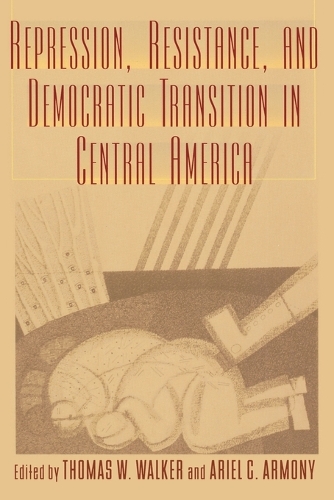
Repression, Resistance, and Democratic Transition in Central America
(Paperback)
Publishing Details
Repression, Resistance, and Democratic Transition in Central America
By (Author) Ariel C. Armony
Edited by Thomas W. Walker
Bloomsbury Publishing PLC
Rowman & Littlefield Publishers
1st August 2001
United States
Classifications
General
Non Fiction
Political structures / systems: democracy
Revolutionary groups and movements
Revolutions, uprisings, rebellions
972.8052
Physical Properties
Paperback
301
Width 158mm, Height 229mm, Spine 20mm
522g
Description
For Central America, the last third of the twentieth century was a time of dramatic change in which most countries shifted from dictatorships to formal political democracy. The process of transition in most Central American countries was made possible only through violent conflict-costing over 350,000 lives-which either toppled the dictatorships or forced them to negotiate transition to a more democratic system. p Repression, Resistance, and Democratic Transition in Central America shows how revolt and revolution serve as the motors of political change in this region. The book systematically examines the various ways in which democratic transition has taken place-all of which have been distinct from countries in South America, where democratization was relatively sudden and peaceful. p Written by leading scholars, Repression, Resistance, and Democratic Transition in Central America examines the major forces shaping change in the region and provides the recent political history of all six Central American countries: Nicaragua, El Salvador, Guatemala, Honduras, Costa Rica, and Panama. Each country's particular transition adds to the reader's understanding of democratization in the late twentieth century. Democracy is viewed in broad terms, allowing the contributors to focus on each country's unique development, along with presentation of the major themes in the social, political, and economic history of these nations. These cases raise questions about the behavior and values of elites and masses in the transition to and in the deepening of democracy. As this book reveals, external actors-particularly the United States, the Organization of American States and the United Nations-had a significant impact on political conversion. The relationship between neoliberalism and democracy is also addressed. p This new text is ideal for courses in Latin American history and politics, as well as courses focusing on the transition to democracy in Latin America.
Reviews
Recommended for all research collections. * Choice Reviews *
Great for teaching, reference, term papers, or just sorting out the contemporary politics of this tortured region. -- John Coatsworth, Harvard University
Welcome additions to the already rich body of literature on Central America. In addition to deepening analysis of and asking new questions about the effects of the region's political and economic crises, especially the impact of war, these authors also point to new directions for evaluating the prospects of lasting peace and democracy. -- David Carey Jr., Loyola University Maryland
While most of Latin America recently passed from repressive dictatorship to formal democracy, the unusual nature of that transition in nearly all of Central America has received considerably less scholarly attention than it deserves. Written by a team of internationally known specialists, this volume goes a long way in correcting that deficiency. -- Oscar Arias Snchez, president of Costa Rica, 198698
